Tamils held a massive protest in Vavuniya rejecting the 13th Amendment and demanding recognition of their nationhood, self-determination, and sovereignty.
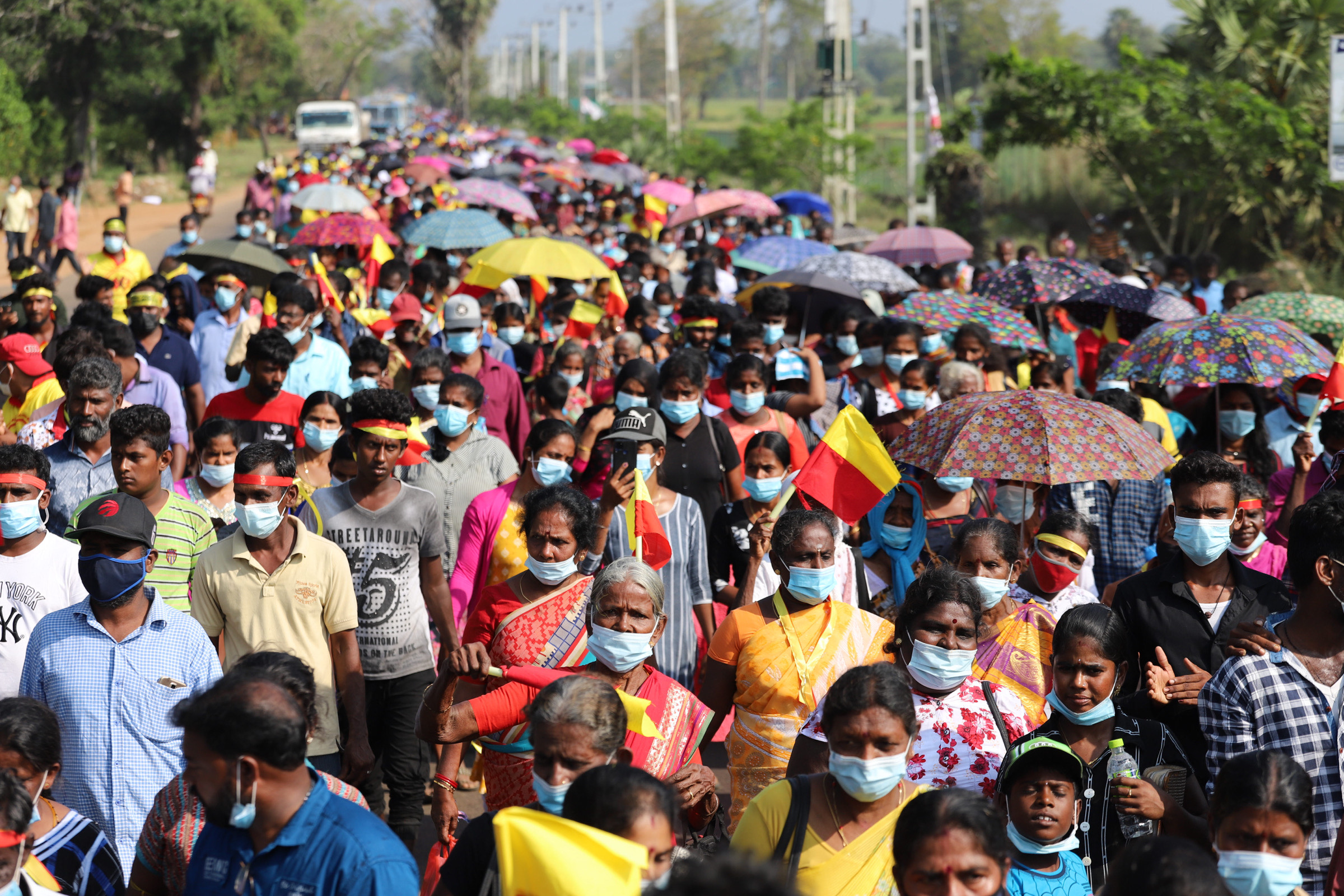
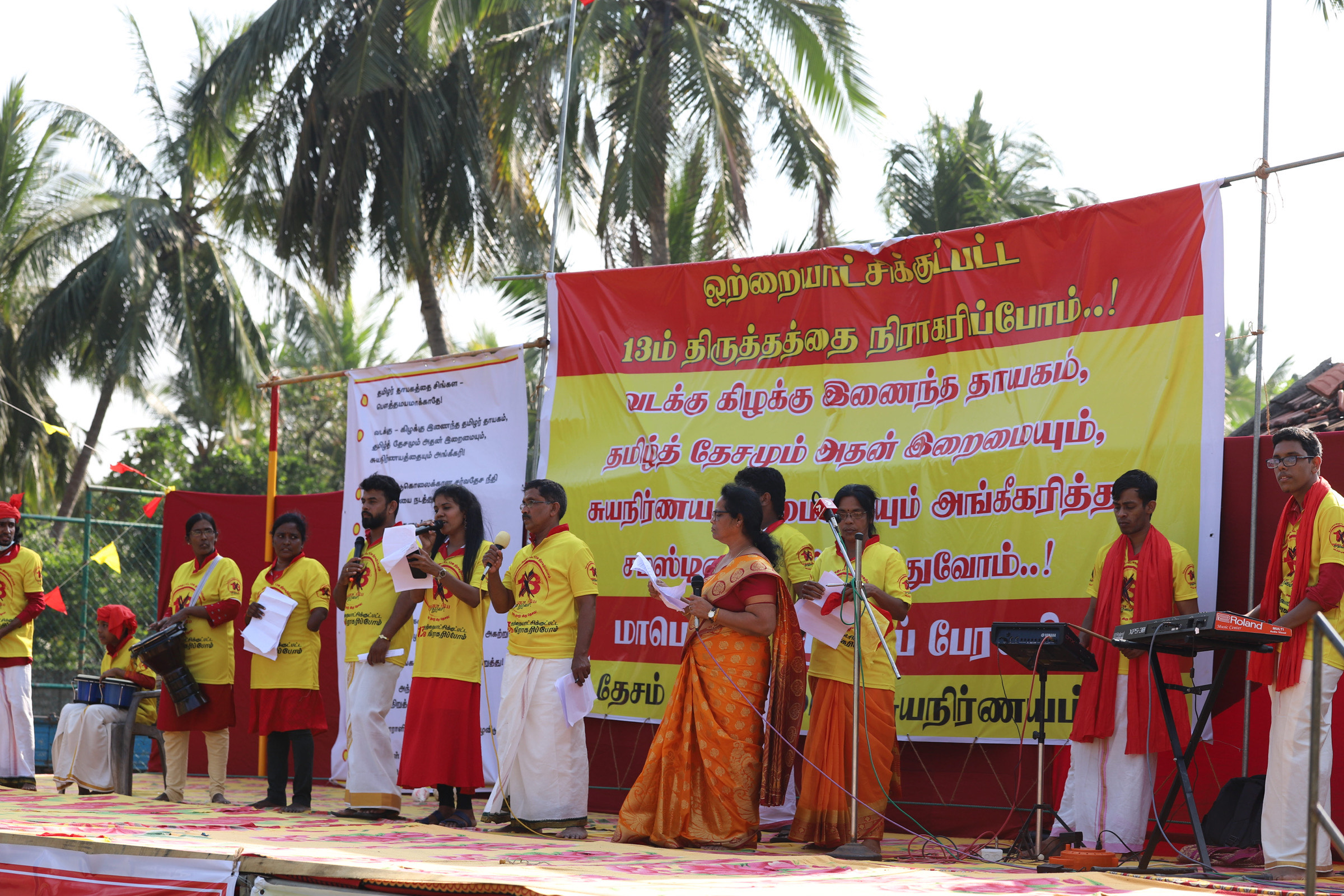
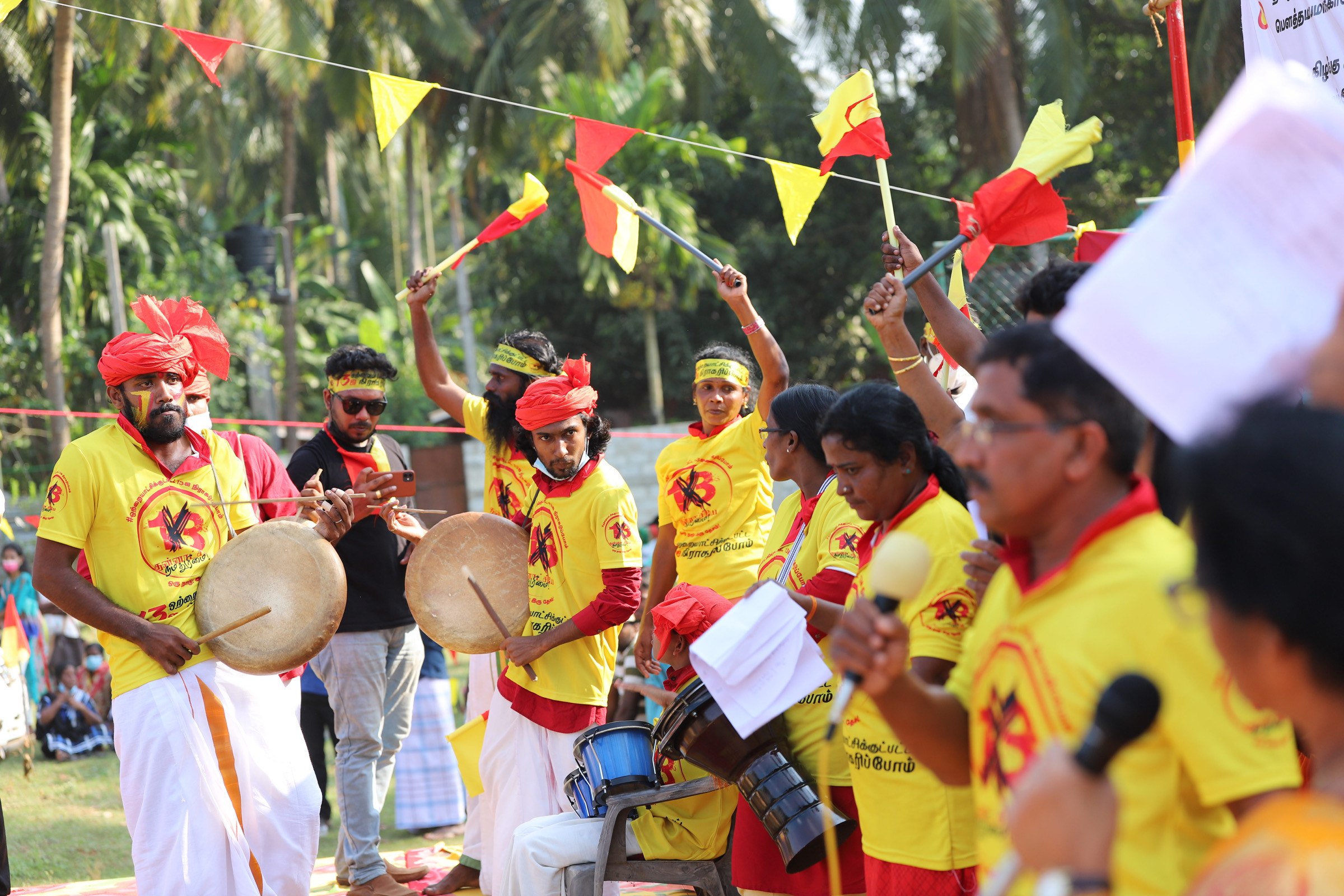
The 13th Amendment was established in 1987 as part of the Indo-Lanka accord and created the system of Provincial Council, promising greater devolution of land and police powers to a merged North-East. However, Sri Lanka has failed to implement the accord.
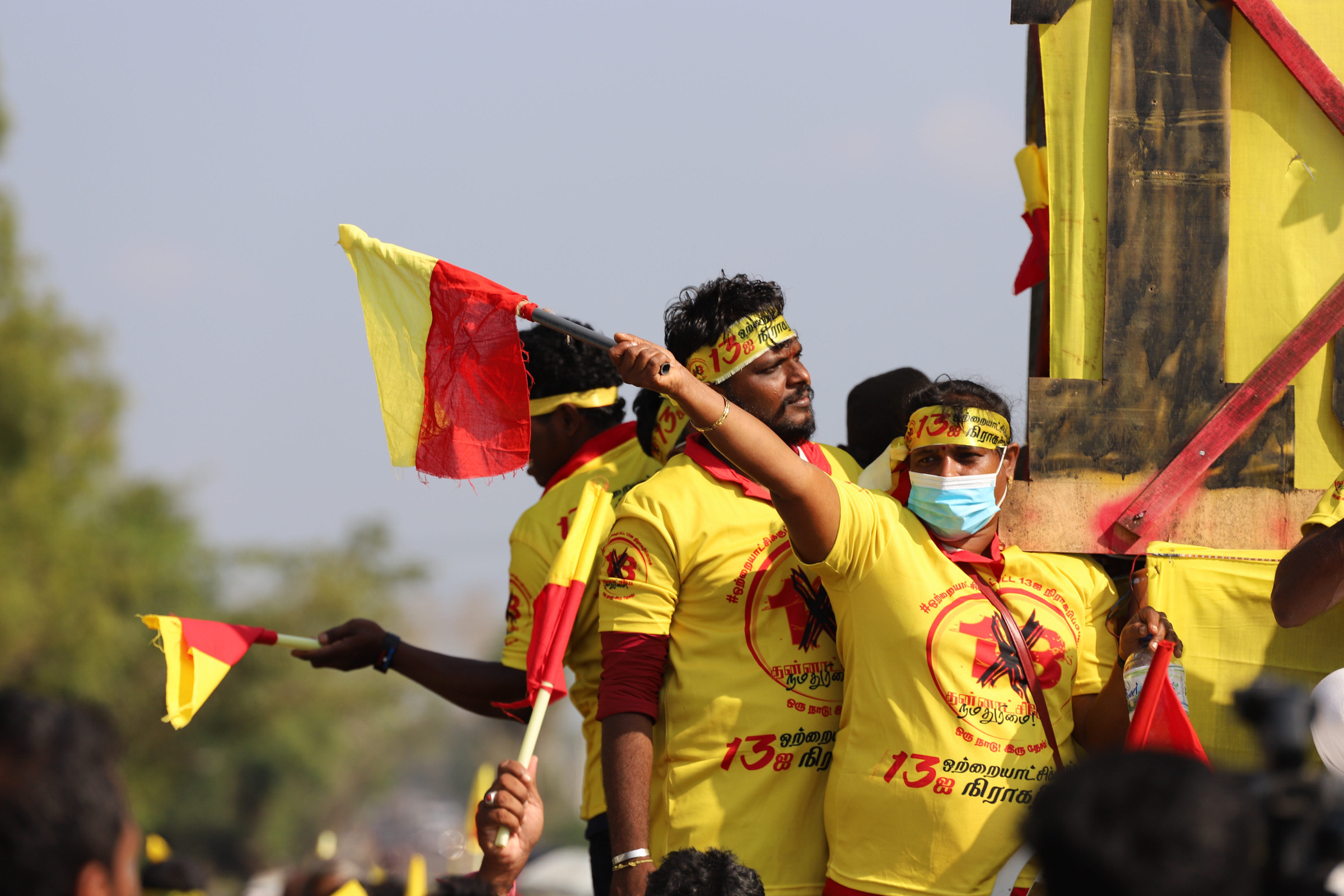
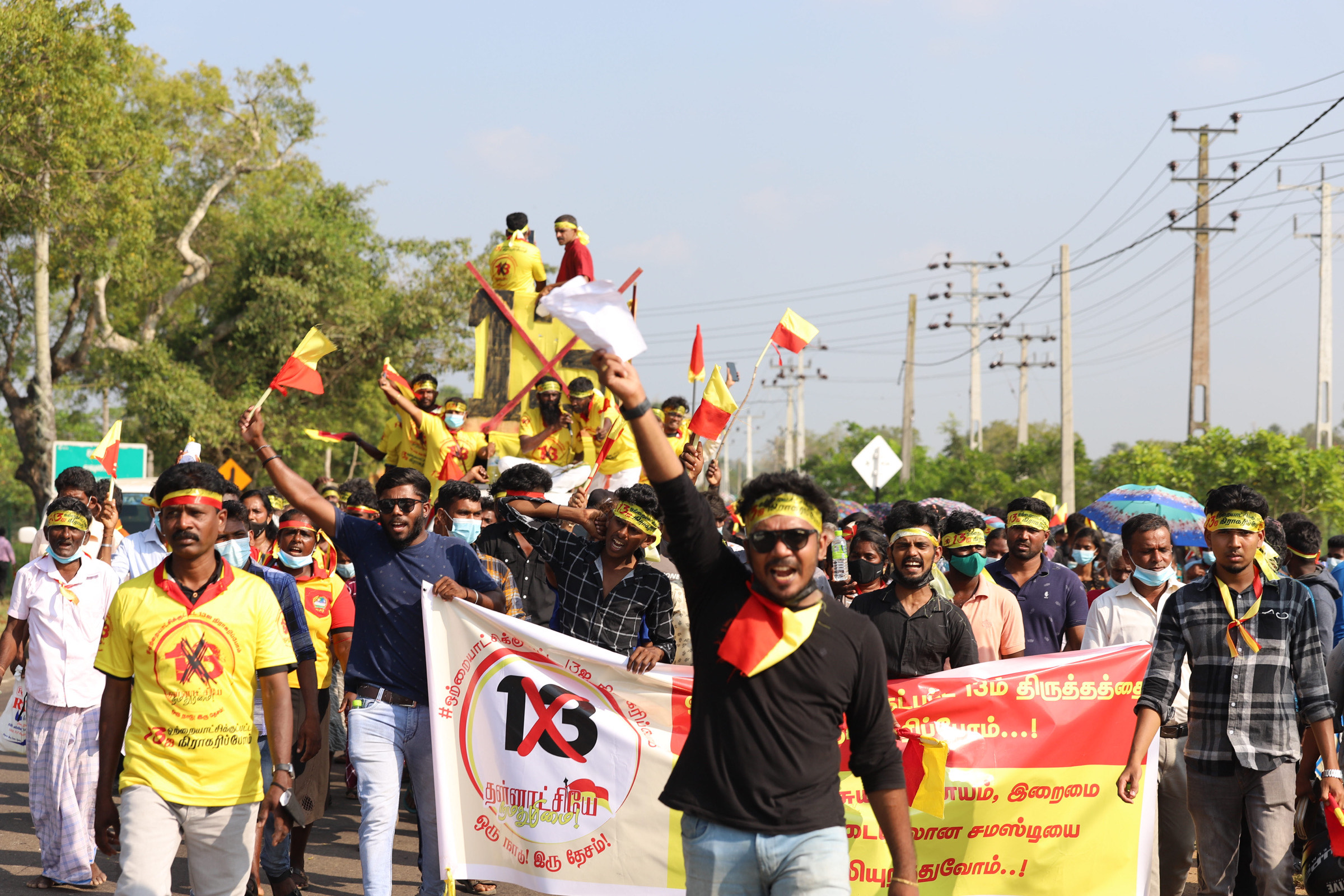
Earlier this year, Tamil political parties including the Tamil National Alliance (TNA), Tamil Makkal Thesiya Kootani (TMTK), and Illankai Tamil Arasu Katchi (ITAK) urged India to ensure that Sri Lanka abides by its commitments under the 13th Amendment and devolve power to the Tamil provinces as a starting point "towards a federal structure". The Tamil National People's Front (TNPF) have continued to campaign against the implementation of the 13th Amendment as it would create a setback in the political struggle for Tamil self-determination.
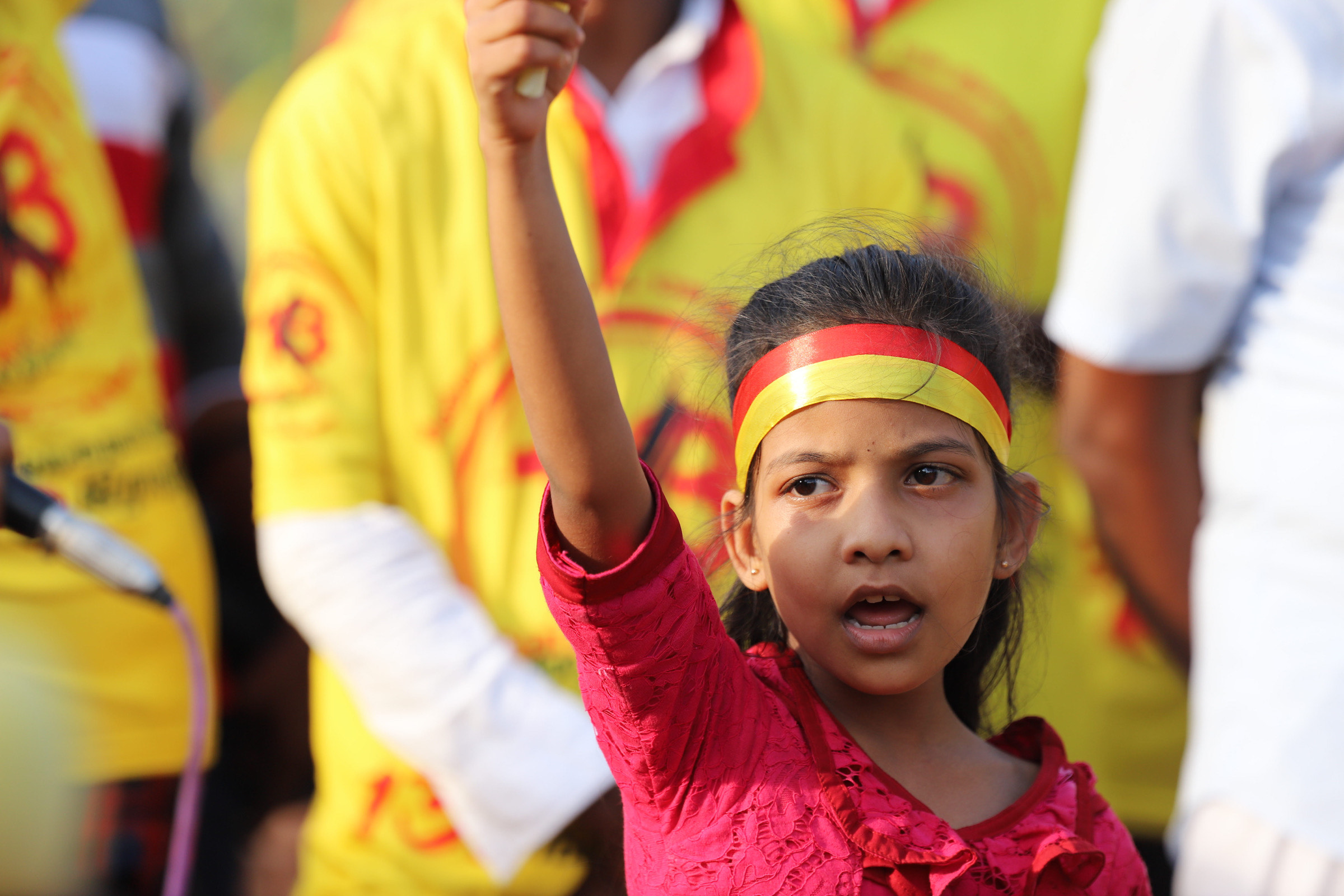
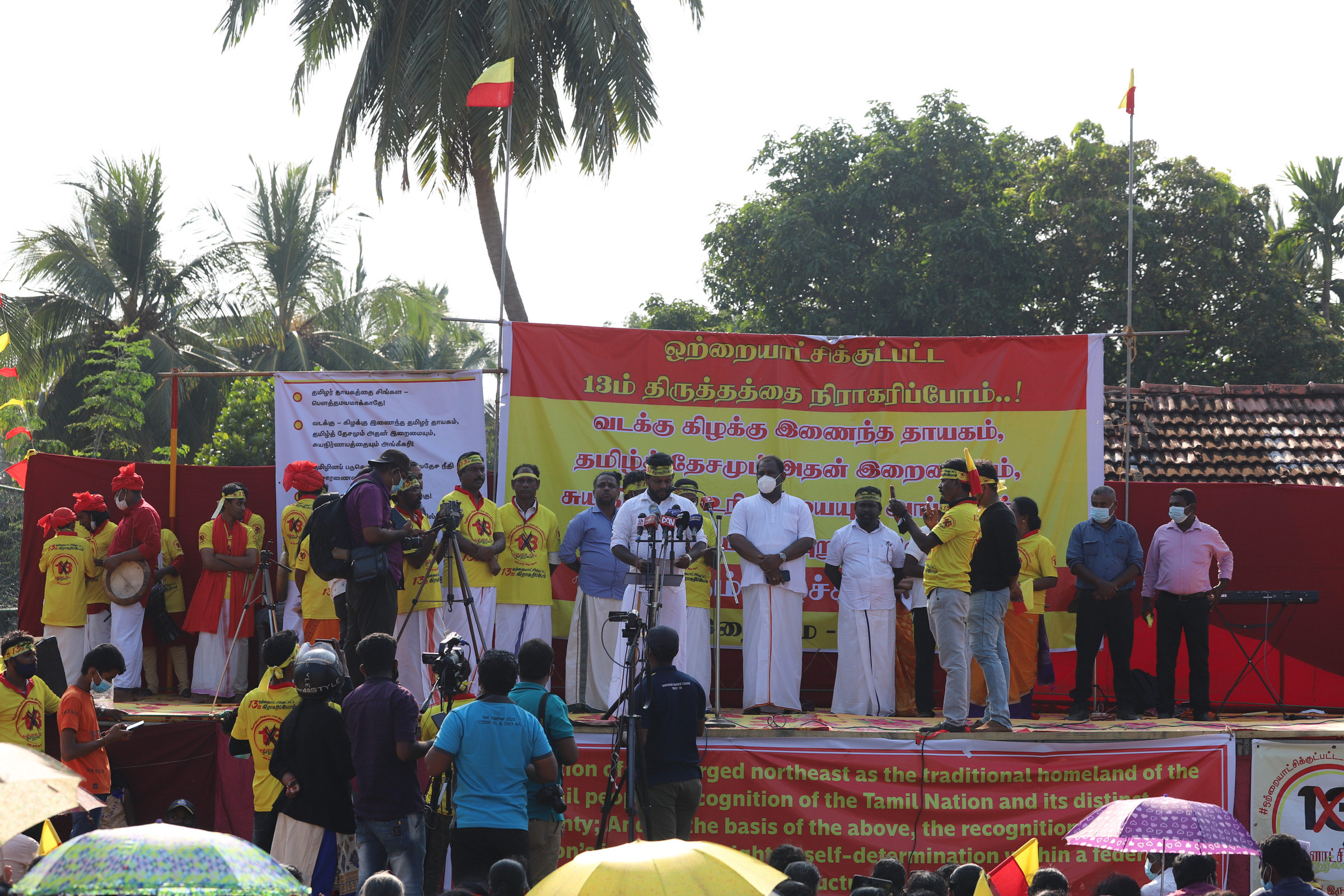
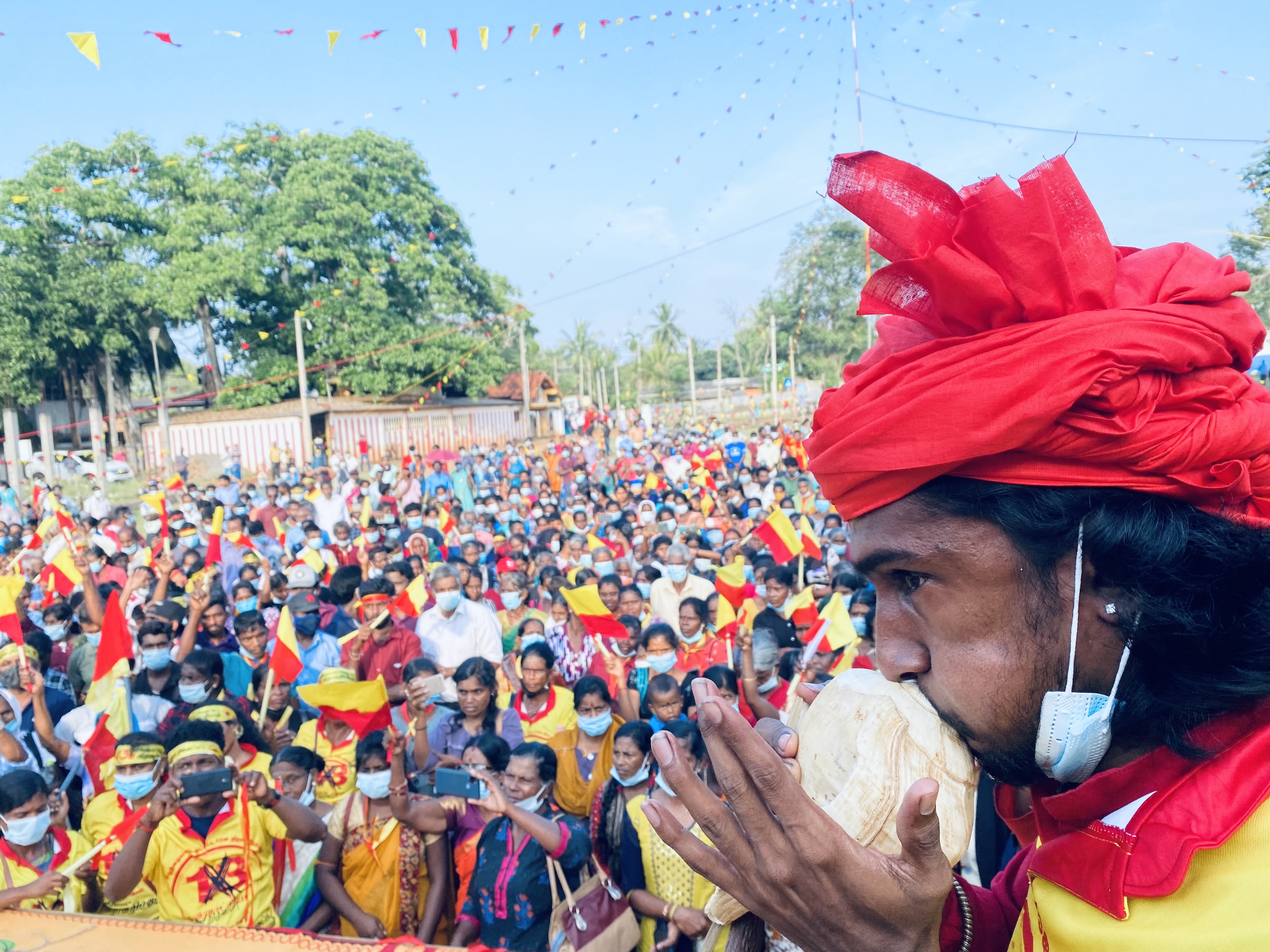
Gajendrakumar Ponnambalam, leader of the Tamil National People’s Front (TNPF), spoke at the rally against the 13th amendment. In an interview with the Tamil Guardian, he decried the 13th amendment as a "death knell" for the Tamil nation.
Read more here: India's security interests, Sri Lanka and the 13th Amendment - Interview with Gajendrakumar Ponnambalam
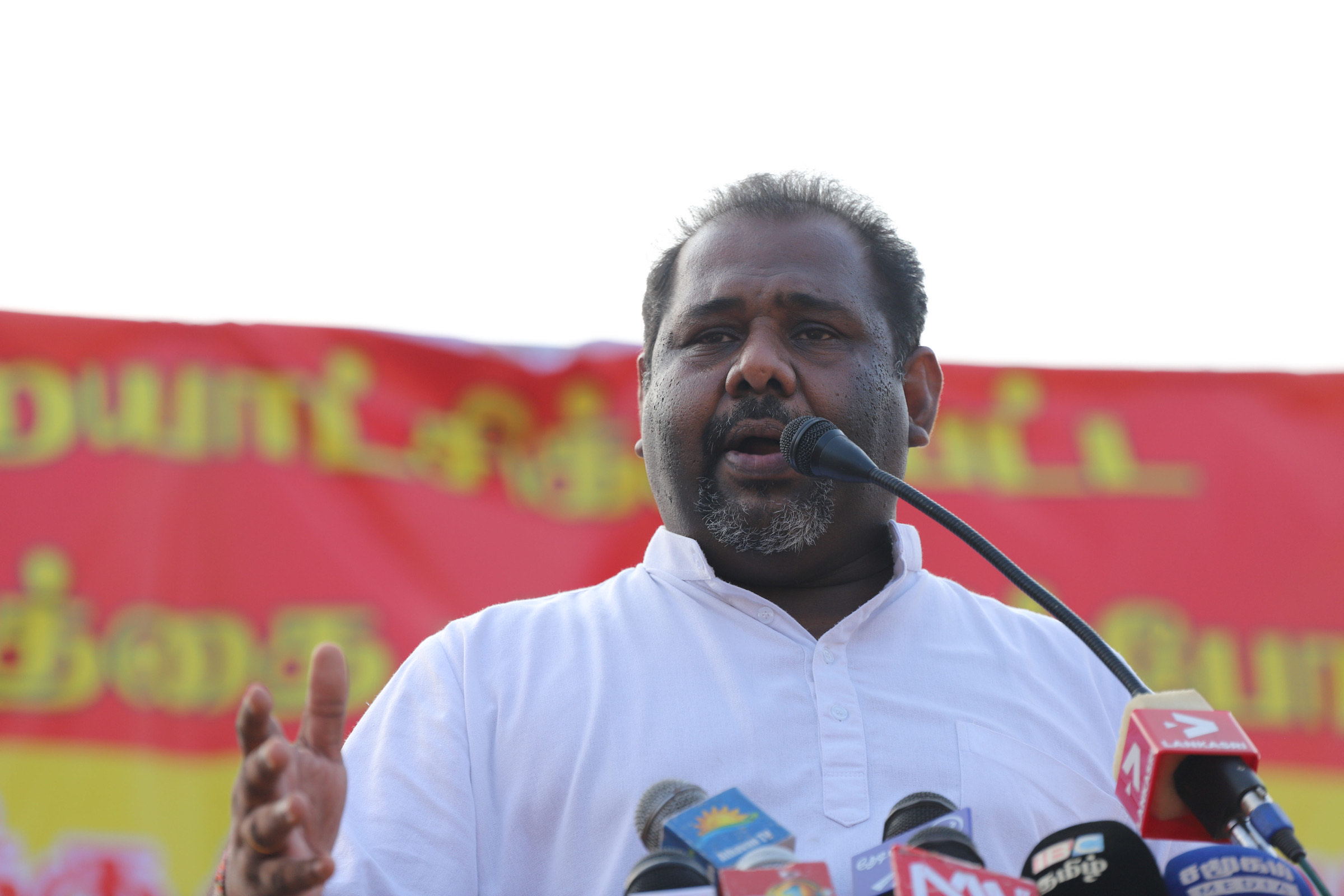
“The whole problem with the Sri Lankan constitutions has been that they are unitary in character and unlike other unitary states, in Sri Lanka, the way in which the judiciary has interpreted the unitary character is very unique,” Ponnambalam stated explaining that “it is an extremely narrow interpretation that is completely opposed to the notion of devolution or power-sharing, and has been linked with the notion that Sri Lanka is essentially a Sinhala Buddhist state and that this island, and the Sinhalese people being the chosen people, are to protect Buddhism in its purest form".
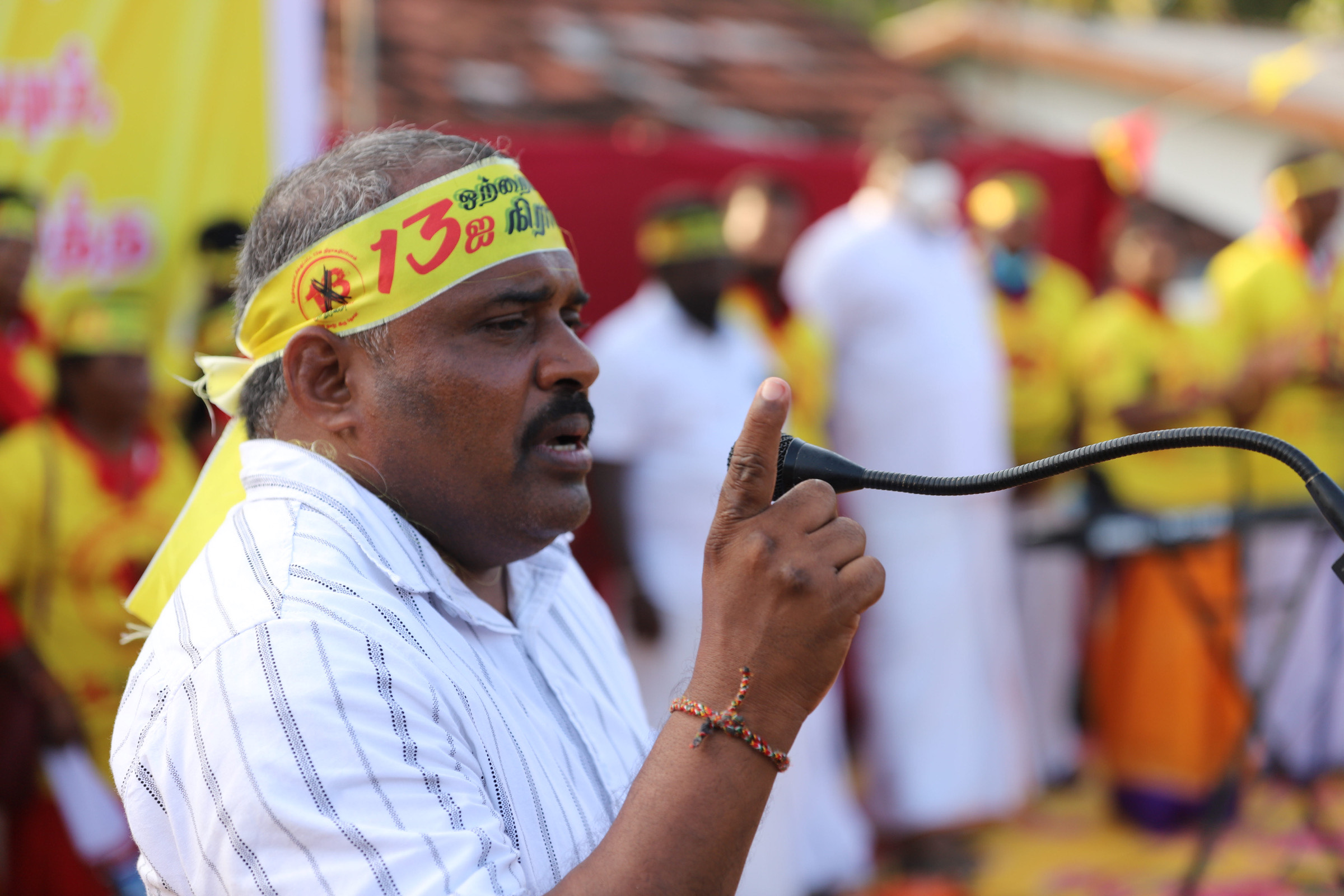
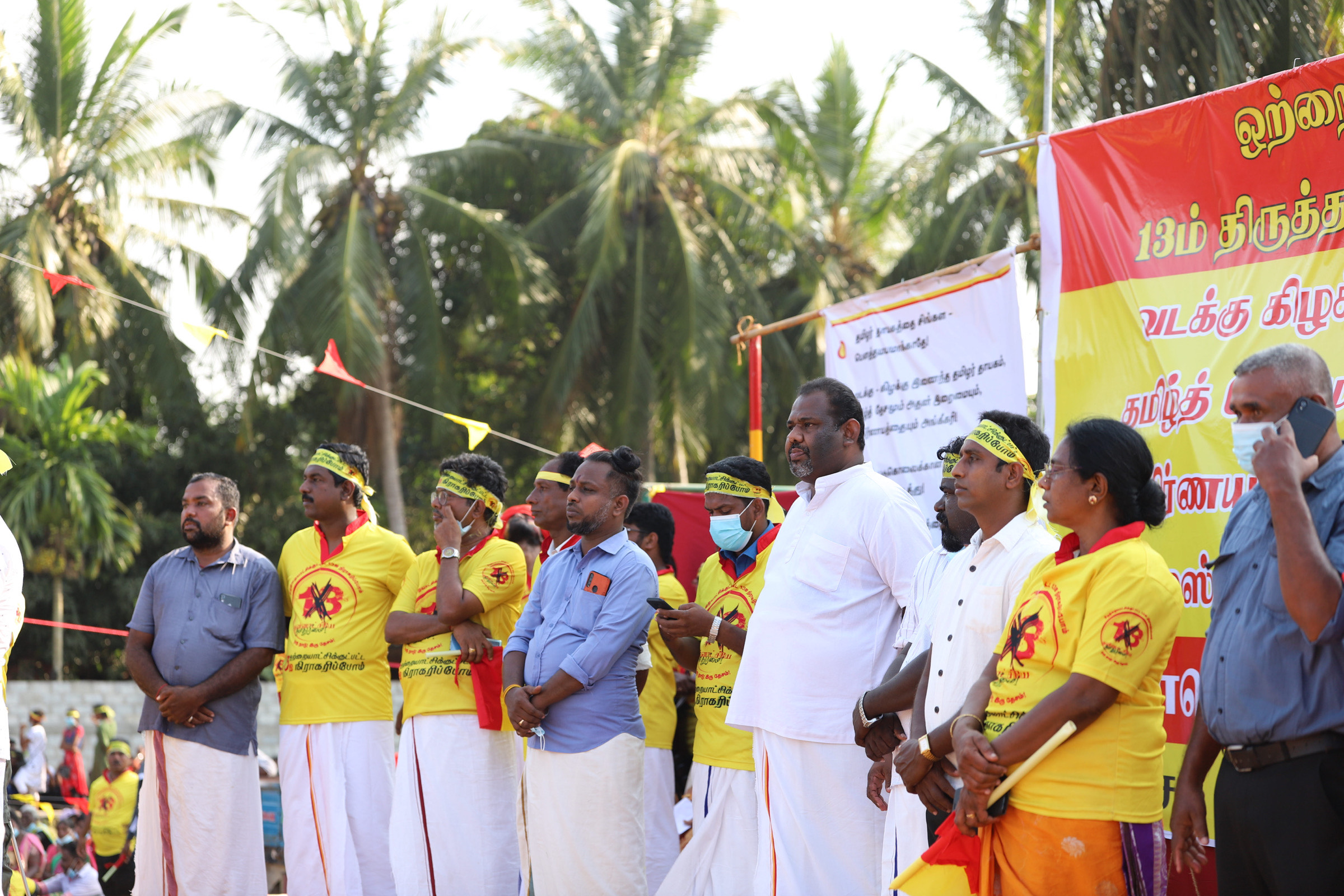
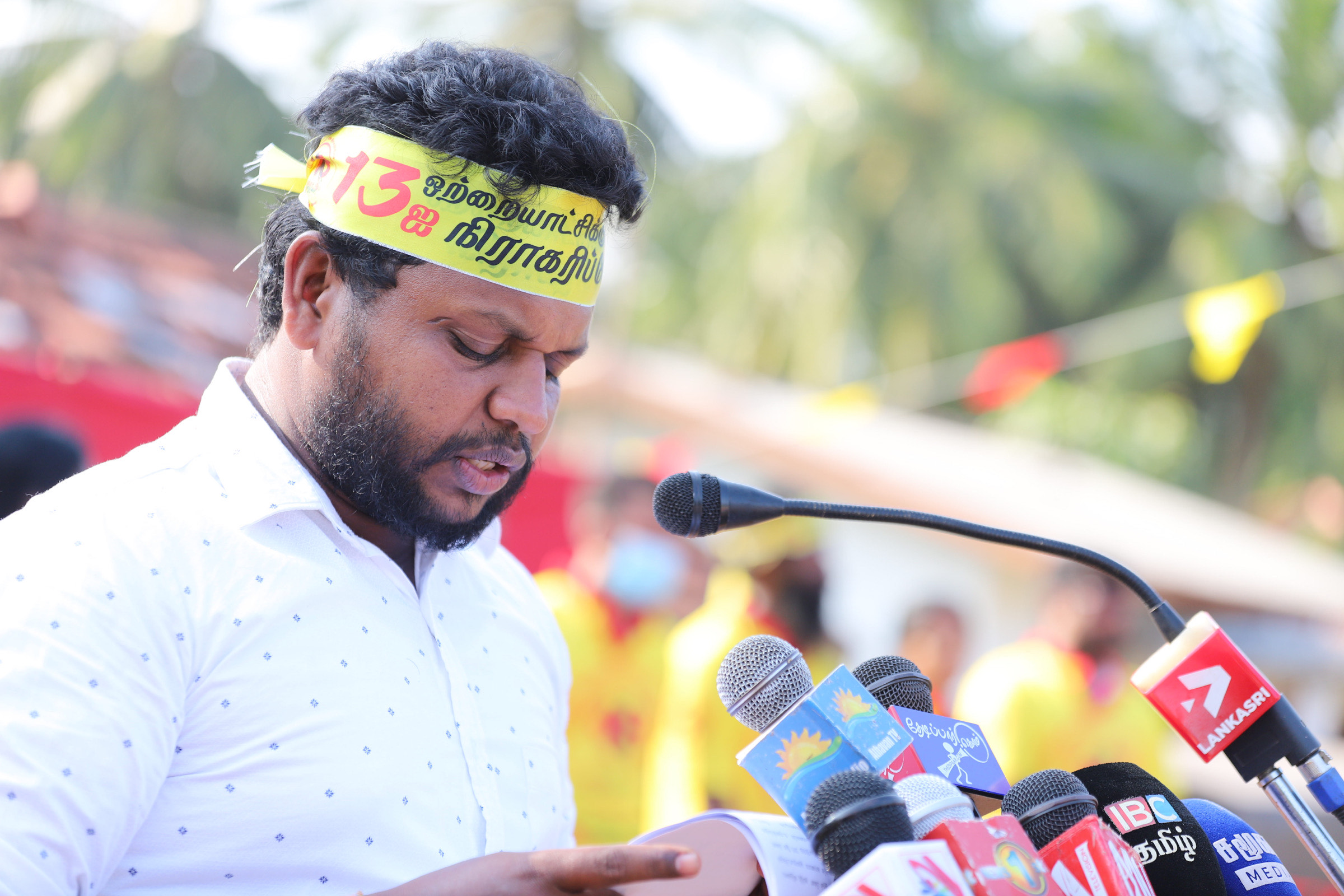
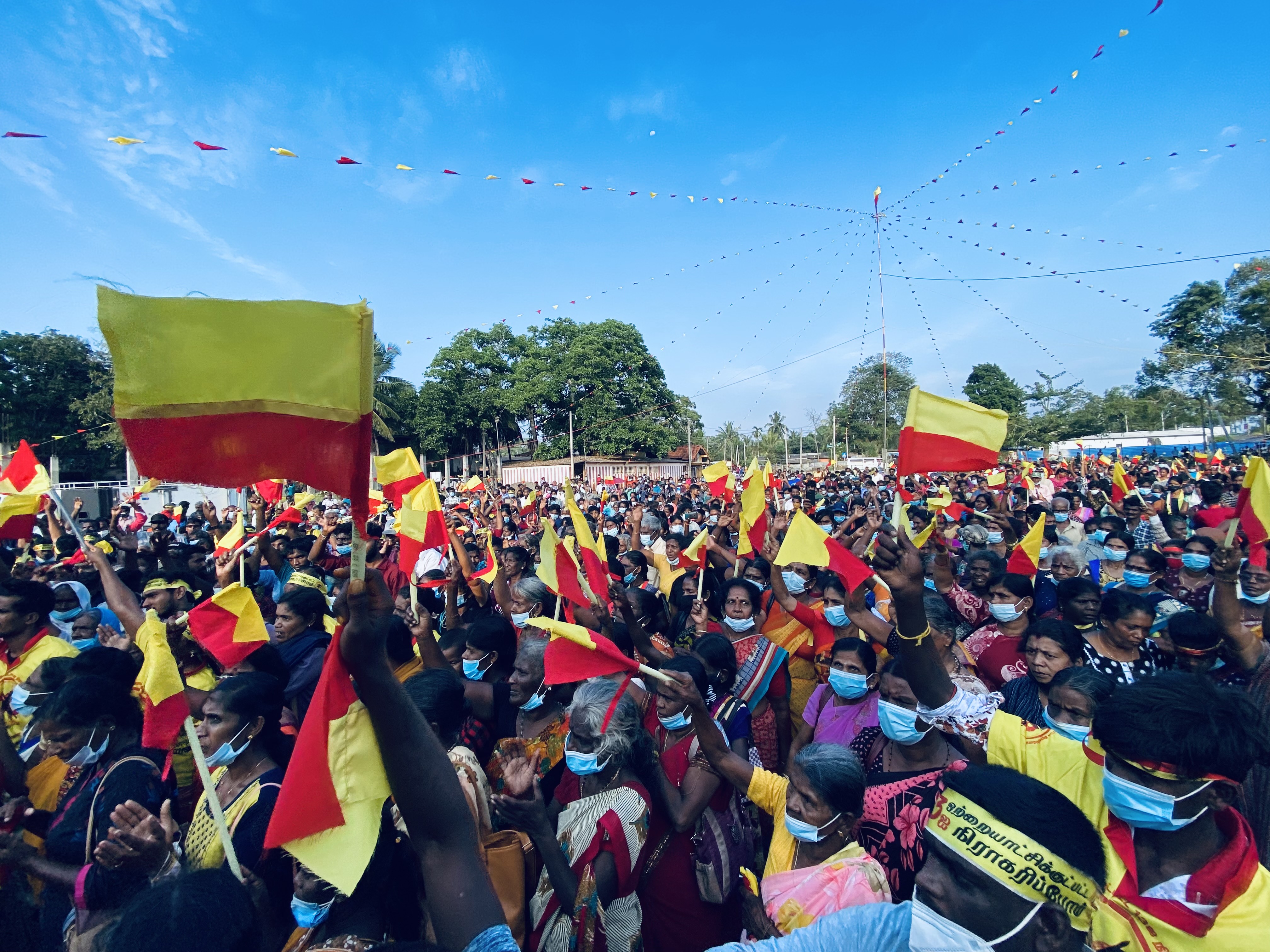
Read more here.
